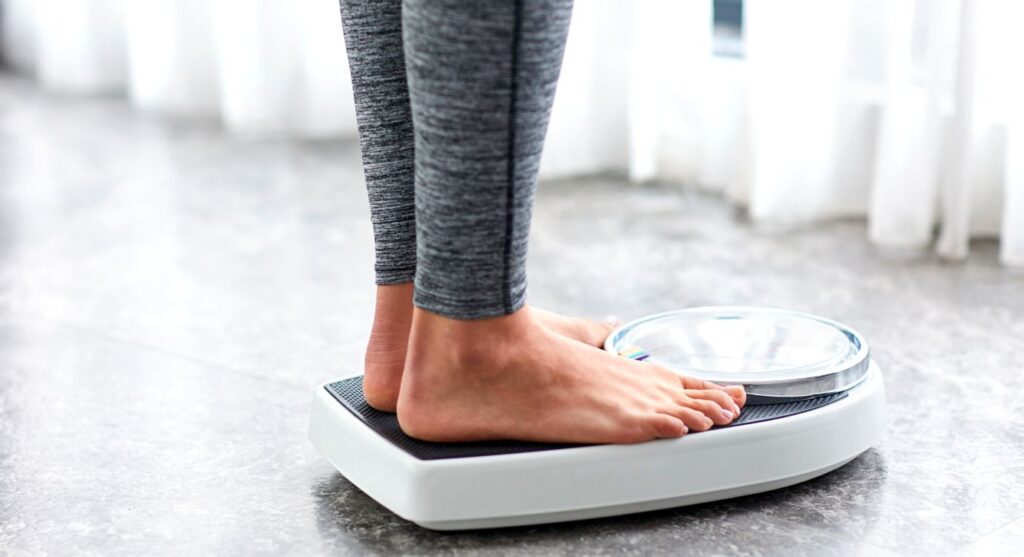A swollen, tight belly? Feeling like you have a balloon in your stomach?
Bloating can be really uncomfortable, and those suffering from stomach bloat often turn to supplements to ease the discomfort.
One of those being magnesium. But is there any evidence to support the use of magnesium for bloating?
Magnesium is a key mineral our bodies need to stay healthy.
It is used in more than 300 biochemical reactions in the body and is involved in multiple essential functions – including protein synthesis, muscle and nerve function, the regulation of blood pressure and blood sugar and digestion.
So can magnesium supplements help with bloating?
Both research and anecdotal evidence indicate that magnesium supplements can help correct deficiencies and ease complaints around bloating – including abdominal cramping, anxiety, and constipation.
In this article, we’ll walk you through
- Magnesium for bloating and constipation
- The best magnesium for bloating
- Why magnesium may help stomach issues
Let’s take a look.
In this guide:
Is magnesium good for bloating?
Can magnesium help my stomach bloat? Can I take magnesium for bloating and constipation? Will it make my symptoms worse? Here’s what you need to know.
Bloating occurs when your body is unable to digest food adequately. This can happen for many reasons. It may be caused simply by eating too fast, food intolerance, excess gas, constipation, or stomach acid deficiency.
If you don’t have enough acid in your stomach, you won’t be able to digest food effectively. When food isn’t digested quickly enough, it begins to ferment, causing bloating.
So what does magnesium have to do with this?
Magnesium is key to regulating the body’s production of stomach acid. Magnesium deficiency can actively worsen digestive issues – or may also be the initial trigger.
Research also supports anecdotal evidence suggesting magnesium supplements may help decrease bloating when experienced as a symptom of premenstrual syndrome (PMS).
Read more: Magnesium for PMS


How does magnesium for bloating work?
Magnesium supplements can help neutralise stomach acid, reduce gastrointestinal tract inflammation, and relax stomach muscles. All these properties can lead to a reduction in stomach bloating.
Magnesium also has some natural laxative properties, which may counteract bloating caused by constipation.
In fact, some research suggests magnesium supplements may help decrease symptoms of premenstrual syndrome (PMS), including bloating and water retention.
For example, one older study found that taking 250 mg of magnesium daily improved several symptoms of PMS, including bloating. But keep in mind that further studies are necessary.
Read more: Magnesium for water retention
Are there any side effects of using magnesium for bloating?
For most people, staying within supplement dosage guidelines shouldn’t cause significant adverse effects.
However, high doses of magnesium from supplements or medications may cause nausea, abdominal cramping, diarrhoea and bloating- not ideal if that’s what you’re looking to treat!
It’s also possible that magnesium derived from supplements may interact with some prescribed medicines, including antibiotics.
You should always check with a medical professional before integrating a supplement into your health and wellness routine, but it’s imperative if you already consume regular supplements or medications.
For example, suppose you routinely use magnesium-containing antacids or laxatives. In that case, you should be extra careful about choosing a magnesium supplement – which may take your daily magnesium consumption over the recommended safe amount.


Which magnesium is best for bloating?
So, what type of magnesium should I take for bloating? Will one form of magnesium ease stomach bloat more than the next?
With bloating, it’s essential to understand what may be causing the initial issue. Bloating is a symptom of a deeper problem (although not necessarily a serious one) – rather than a condition in itself.
As such, choosing the correct magnesium supplement first requires you to understand what’s causing you to bloat.
If constipation is the trigger, magnesium citrate may be a promising option.
Citrate has a mild laxative effect due to its ability to pull water into the intestines, making bowel movements easier to pass. Unlike magnesium oxide – which can be harsh on the digestive system and gut – the laxative effect of citrate is much more tolerable.
Supplements that combine magnesium citrate with other types of magnesium – for example, those containing magnesium threonate and citrate – are also a great option for those looking for a more gentle laxative effect.
However, if bloating is a symptom of trapped gas, it’s unlikely any form of magnesium will particularly affect bloat.
In this case, it’s recommended to try stretches and yoga poses and make a conscious effort to eat and drink slowly.
Read more: Magnesium for constipation
How to use magnesium for bloating
Once you’ve established the type of bloating you’re dealing with, the next stage is to choose a product that’s right for you.
It’s worth understanding how much magnesium you consume in your diet (and thus whether a supplement or topical may be necessary). Then, work backwards: how much additional magnesium do you need?
The other element is to consider which ingestion method you prefer.
Magnesium supplements can be ingested as vitamin pills, in a prepared liquid form, or as a powder which you can mix into liquids. Topicals are also an option – if you struggle with IBS or have a weak digestive system, this may be better suited.
All the above will help with magnesium deficiency related bloating – so it’s primarily a matter of personal preference.
Always follow the directions on the packages and stick to the dosage guidelines outlined by the brand. Estimates generally vary, but NHS guidelines suggest consuming up to 400 mg of magnesium supplementation daily is unlikely to cause harm.


Can magnesium cause bloating?
While magnesium can assist in reducing bloating, it’s important to note that in some cases, magnesium can also contribute to bloating. This response varies from person to person, as some individuals are more sensitive to magnesium-induced bloating than others.
One of the main reasons magnesium can cause bloating is due to excessive intake. Too much magnesium can disrupt the fluid balance in the digestive system, drawing water into the colon and softening stools. This increased water content can lead to bloating and discomfort.
Magnesium can also cause bloating in certain individuals who are intolerant to the mineral or struggle to digest it effectively. Inadequate digestion will cause magnesium to move to the large intestine, where it also attracts water, softens stools and causes bloating.
In addition, people with pre-existing digestive issues, such as IBS, may be more prone to experience bloat from magnesium supplements.
If you experience gas or bloating after taking magnesium supplements, try reducing the dosage or experimenting with different forms of magnesium. It may also help to consume magnesium alongside a meal to aid digestion.
Should these symptoms persist, seeking guidance from a healthcare provider is advisable.
Frequently asked questions:
Is magnesium citrate good for gas and bloating?
Magnesium citrate has a gentle laxative effect that may ease gas and bloat caused by constipation.
Can magnesium cause stomach bloating?
Consuming high doses of magnesium from supplements or medications may cause side effects, including nausea, abdominal cramping, diarrhoea and bloating.
Final thoughts
Magnesium is an essential mineral, without which we would be unable to maintain health and normal bodily functions.
The supplement can be an effective weapon against bloating, particularly if bloating stems from digestive issues, such as constipation.
Always check with a doctor if you experience persistent bloating, as it may signify a more serious problem. Magnesium can be an excellent and effective supplement, but it cannot replace a nutritious diet or cure underlying medical issues.
















































































































































